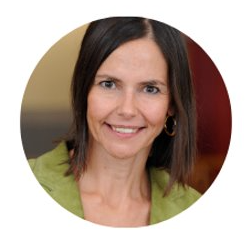There is a long-running debate about the relationship between philanthropy and politics. Traditional received wisdom is that philanthropists should steer of politics, but there is a growing view that the two are inseparable and that philanthropy both can and should take a political position. This is becoming more marked as the political arena becomes more polarised and it happens at both ends of the political spectrum, with left- and right-leaning funders supporting not only campaigns by politicians but also funding opinion formers who adopt the same views.
Moderated by Alliance features editor Andrew Milner, and introduced by Propel Philanthropy founder Peter Brach, the speakers included:
- Johanna Mair – Stanford PACS Distinguished Scholar, Stanford University
- Jeff Kwasi Klein – Co-Director, Multitudes Foundation
- Sarah Durieux – Co-Director, Multitudes Foundation
- Henry Alt-Haaker – Senior Vice President, Robert Bosch Stiftung
A few highlights from the event
 Jeff: There is ample need to reconcile the widespread hesitation within philanthropy to fund political work and to actually realise philanthropy’s role, and also the responsibility in helping to shape democracies for the future. And also on democracy that can deliver on its promise of actually being representative. Democracy, then, is also responsive to the needs and desires of people living in this society. And this is also important with the growing threat from the far-right; also a democracy that is resilient against any attempts to dismantle it.
Jeff: There is ample need to reconcile the widespread hesitation within philanthropy to fund political work and to actually realise philanthropy’s role, and also the responsibility in helping to shape democracies for the future. And also on democracy that can deliver on its promise of actually being representative. Democracy, then, is also responsive to the needs and desires of people living in this society. And this is also important with the growing threat from the far-right; also a democracy that is resilient against any attempts to dismantle it.
 Sarah: I think we have some preconceived ideas of what can be political philanthropy, and what we’re really trying to do with Multitudes is say, the same way there’s a whole field for social innovation, there is a whole field for political innovation. And especially when we talk about democracy, we need to invest in that field as philanthropists, as activists, as actors who are committed to a better future for all. So one of the things that was really interesting when we started to talk about the project of Multitudes and the reason for setting it up was that very few philanthropic actors actually invest in that field. And so we wanted to also set up Multitudes Foundation engage the conversation on why that is.
Sarah: I think we have some preconceived ideas of what can be political philanthropy, and what we’re really trying to do with Multitudes is say, the same way there’s a whole field for social innovation, there is a whole field for political innovation. And especially when we talk about democracy, we need to invest in that field as philanthropists, as activists, as actors who are committed to a better future for all. So one of the things that was really interesting when we started to talk about the project of Multitudes and the reason for setting it up was that very few philanthropic actors actually invest in that field. And so we wanted to also set up Multitudes Foundation engage the conversation on why that is.
 Johanna: [Making democracy ‘future fit’] is at the core of our research, where we follow the emergence of political innovation; understood as a newly formed field of practice which makes politics and political change the objective of innovation. And this is were we believe this is also an opportunity space for philanthropy, but then also puts up some question marks for philanthropies to address.
Johanna: [Making democracy ‘future fit’] is at the core of our research, where we follow the emergence of political innovation; understood as a newly formed field of practice which makes politics and political change the objective of innovation. And this is were we believe this is also an opportunity space for philanthropy, but then also puts up some question marks for philanthropies to address.
 Henry: We strongly believe that… civil society voice has to be heard in political debates; has to be represented in order to have a lively and vibrant democracy. But the problem with civil society voices is often that they are not very well resourced to do political advocacy, and private foundations do have the financial but also the political and social capitals to support those voices that need to be heard in order to make democracy more inclusive and more representative, but don’t have the means to do so.
Henry: We strongly believe that… civil society voice has to be heard in political debates; has to be represented in order to have a lively and vibrant democracy. But the problem with civil society voices is often that they are not very well resourced to do political advocacy, and private foundations do have the financial but also the political and social capitals to support those voices that need to be heard in order to make democracy more inclusive and more representative, but don’t have the means to do so.
You can watch the full video here:
Eleanor Margolis is a freelance journalist



Comments (0)